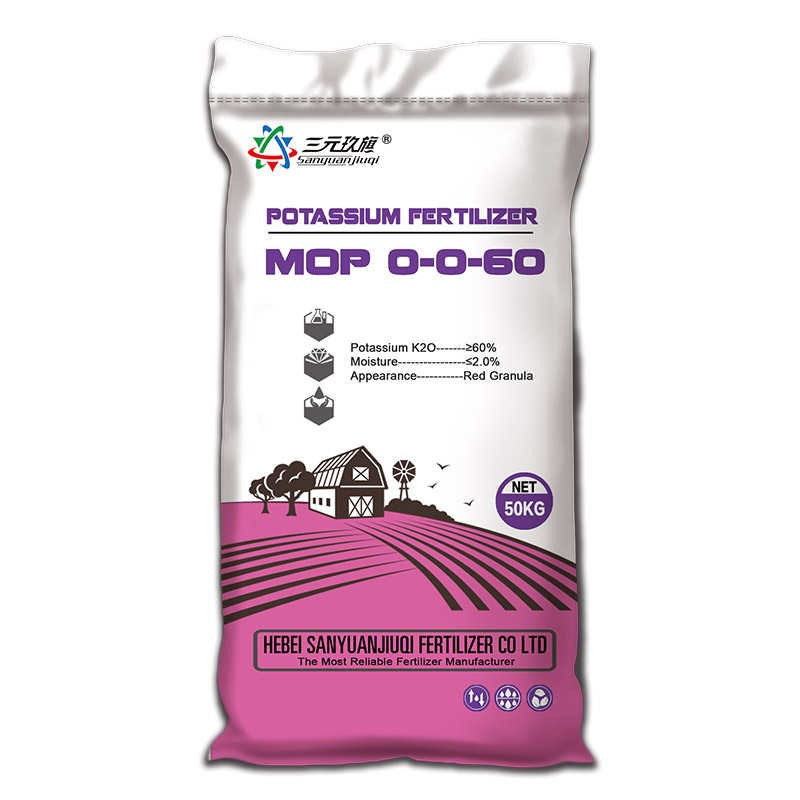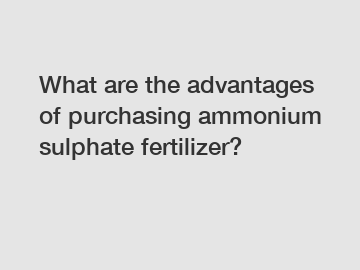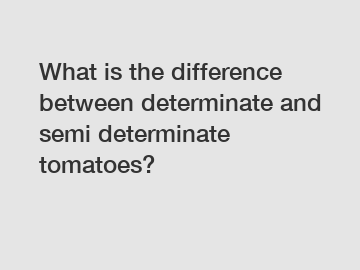The Impactful Effects of Potassium Fertilizer on Plant Growth and Crop Yield
Potassium fertilizer stands as a cornerstone in modern agriculture, playing a pivotal role in influencing plant health, crop quality, and overall agricultural productivity. The effects of potassium fertilizer are far-reaching, impacting various aspects of plant physiology and contributing significantly to the optimization of crop yields. Let's explore the multifaceted effects of potassium fertilizer in enhancing agricultural outcomes.
**1. Osmotic Regulation and Water Uptake: Potassium is a key player in osmotic regulation within plant cells. It regulates water uptake and helps plants maintain turgor pressure. Adequate levels of potassium ensure that plants can efficiently absorb water from the soil, even in challenging environmental conditions, contributing to improved drought resistance and overall water use efficiency.
**2. Photosynthesis Enhancement: Potassium plays a crucial role in the process of photosynthesis, the engine that drives plant growth. It activates enzymes involved in photosynthetic pathways and assists in the conversion of sunlight into energy. By supporting efficient photosynthesis, potassium fertilizer contributes to increased biomass production and healthier, more robust plants.
**3. Stress Tolerance and Disease Resistance: Potassium is associated with enhanced stress tolerance in plants. It helps plants withstand adverse conditions such as extreme temperatures, salinity, and water stress. Additionally, potassium strengthens the plant's immune system, making it more resistant to diseases and pests. The overall result is a more resilient crop that can better withstand environmental challenges.
**4. Improvement in Nutrient Uptake: Potassium plays a role in nutrient uptake by plant roots. It facilitates the movement of other essential nutrients, such as nitrogen and phosphorus, within the plant. This synergy ensures that plants have access to a balanced nutrient profile, promoting healthy growth and maximizing the effectiveness of other fertilizers.

**5. Enhanced Quality of Agricultural Products: The application of potassium fertilizer has a direct impact on the quality of agricultural products. Fruits, vegetables, and grains grown in potassium-rich environments often exhibit improved taste, color, and nutritional content. This enhancement in quality is not only beneficial for consumers but also contributes to the market value of agricultural produce.
**6. Increase in Crop Yield: One of the most significant effects of potassium fertilizer is its role in increasing crop yield. Potassium is involved in the development of fruits, seeds, and tubers. By promoting reproductive growth, potassium ensures that plants produce a higher quantity of harvestable products. This increase in crop yield is fundamental to meeting the demands of a growing global population.
**7. Alleviation of Nutrient Deficiency: In regions where soil naturally lacks potassium or experiences nutrient depletion due to intensive farming, the application of potassium fertilizer becomes essential. Correcting potassium deficiencies ensures that plants have access to the nutrients required for optimal growth, preventing stunted development and yield losses.
**8. Environmental Impact: The efficient use of potassium fertilizer can also have positive environmental implications. By optimizing crop yields on existing agricultural land, there is less pressure to convert natural habitats into farmland. Additionally, healthy, well-fertilized crops are better equipped to sequester carbon, contributing to climate change mitigation efforts.
Related links:Unveiling the Secrets: All You Need to Know about NPK Fertilizer MSDS!
Is it okay to eat the seeds in summer squash?
What blade should I use to cut aluminum?
NPK Low Chloride Fertilizer: Boost Crop Yields and Soil Health!
Fire-safe design: Revolutionizing safety in float ball valves – What you must know
Is the Roll Top Security Fence Effective in Warding Off Intruders at Night?
Unveiling the Secret to Bumper Harvests: Hybrid Lebanese Summer Squash Seeds
In conclusion, the effects of potassium fertilizer on plant growth and crop yield are diverse and profound. From improving water uptake and stress tolerance to enhancing photosynthesis and nutrient uptake, potassium fertilizer for plants plays a central role in fostering agricultural sustainability and addressing global food security challenges. As farmers and researchers continue to refine fertilizer practices, the potential for maximizing the positive effects of potassium on crop production remains a key focus for a resilient and productive agricultural future.
More related agricultural articles:
Choosing the Best Container for Your Greenhouse
Tips for Successful Germination in Plastic Seedling Trays
Is chicken manure a good fertilizer?
Unveiling the Nutritional Powerhouse: Walnut Benefits, Production & Market in Pakistan
Bray Butterfly Valve: The Ultimate Guide to High-Performance Control & Reliability
Discover the Surprising Secrets: Red Fragrant Pear Price Unveiled!
Revolutionizing Woodworking: Are Carbide Planer Blades Worth the Investment?
Boost Brain Power & Heart Health with Bulk Walnut Halves: Health Benefits, Recipes & Where to Buy
What is 15 15 15 fertilizer used for?
What is the introduction of sheet piles?











